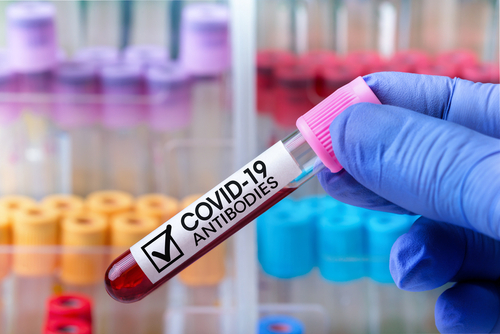You are here
Eli Lilly, Amgen collaborate on production of potential COVID-19 antibody therapies
Primary tabs
Eli Lilly, Amgen collaborate on production of potential COVID-19 antibody therapies
Tue, 2020-09-22 11:43 — mike kraft Eli Lilly, Amgen collaborate on production of potential COVID-19 antibody therapies - Homeland Preparedness News Eli Lilly and Company announced a new collaboration with Amgen last week that will allow a significant increase in supply capacity and scaling of production of its potential COVID-19 therapies. The news came a mere day after Lilly announced that … Read More » Homeland Preparedness News
Eli Lilly, Amgen collaborate on production of potential COVID-19 antibody therapies - Homeland Preparedness News Eli Lilly and Company announced a new collaboration with Amgen last week that will allow a significant increase in supply capacity and scaling of production of its potential COVID-19 therapies. The news came a mere day after Lilly announced that … Read More » Homeland Preparedness News Eli Lilly and Company announced a new collaboration with Amgen last week that will allow a significant increase in supply capacity and scaling of production of its potential COVID-19 therapies.
The news came a mere day after Lilly announced that proof of concept data from its BLAZE-1 clinical trial showed a reduced rate of hospitalization for patients treated with LY-CoV555, a neutralizing antibody. The drug is meant to treat symptomatic COVID-19 in outpatient settings and was being tested through a randomized, double-blind, placebo-controlled phase two study.
“Based on our initial clinical studies, we believe that virus neutralizing antibodies, including LY-CoV-555, could play an important role in the fight against COVID-19,” Dr. Daniel Skovronsky, Lilly’s chief scientific officer and president of Lilly Research Laboratories, said. “Increasing the manufacturing capacity for our neutralizing antibodies through this collaboration with Amgen is a crucial next step, and together we hope to be able to produce many millions of doses even next year.”
Amgen’s expressed interest in the data showcased by these therapies, particularly in their ability to reduce hospitalizations. Throughout the BLAZE-1 trial, mild to moderate recently diagnosed COVID-19 patients were either given placebos or therapeutic doses at 700 mg, 2,800 mg, or 7,000 mg. Most patients reached viral clearance within 11 days of treatment — even those on placebos. Still, LY-CoV555 seemed to improve viral clearance at day three and reduced the overall proportion of patients with high viral loads later on.
Another major point of note was that those using LY-CoV555 had hospitalization rates of 1.7 percent, down from 6 percent for placebos. While that might not seem like much, it represents a 72 percent risk reduction, albeit in a limited population. Better still, the drug was well-tolerated across all doses and provoked no serious side effects. ...

Recent Comments